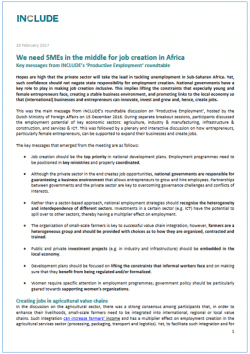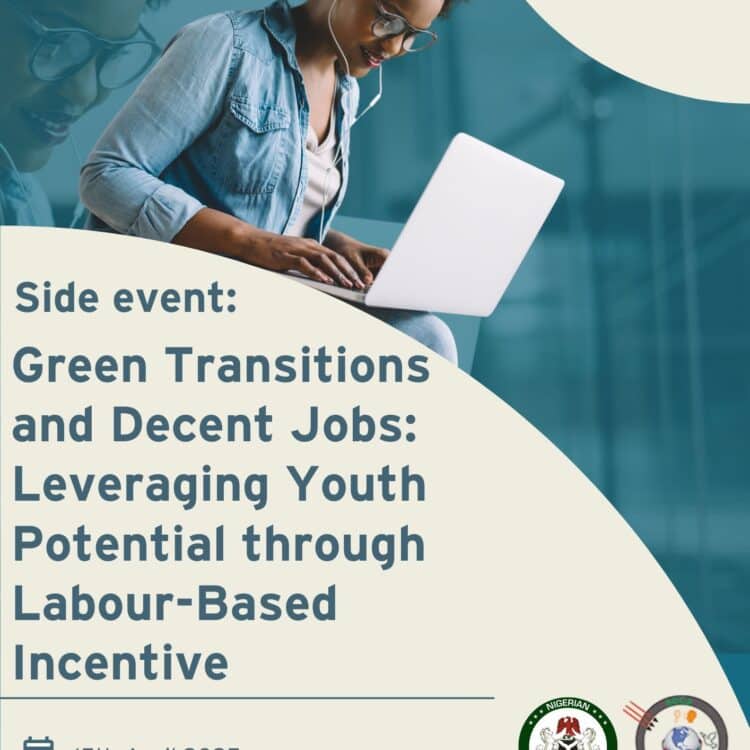Hopes are high that the private sector will take the lead in tackling unemployment in Sub-Saharan Africa. Yet, such confidence should not negate state responsibility for employment creation. National governments have a key role to play in making job creation inclusive. This implies lifting the constraints that especially young and female entrepreneurs face, creating a stable business environment, and promoting links to the local economy so that (international) businesses and entrepreneurs can innovate, invest and grow and, hence, create jobs.
This was the main message from INCLUDE’s roundtable discussion on ‘Productive Employment’, hosted by the Dutch Ministry of Foreign Affairs on 15 December 2016. During separate breakout sessions, participants discussed the employment potential of key economic sectors: agriculture, industry & manufacturing, infrastructure & construction, and services & ICT. This was followed by a plenary and interactive discussion on how entrepreneurs, particularly female entrepreneurs, can be supported to expand their businesses and create jobs.





